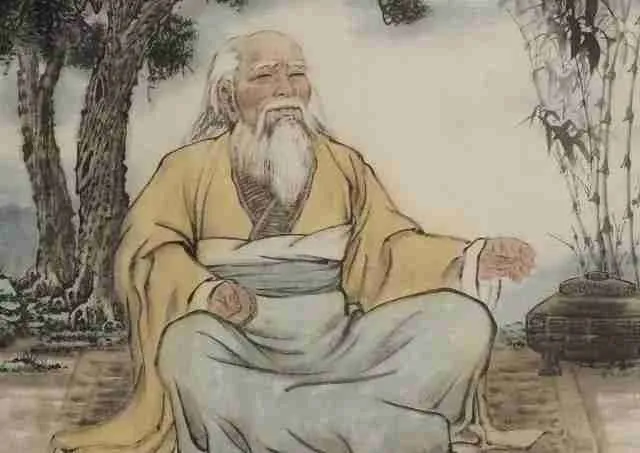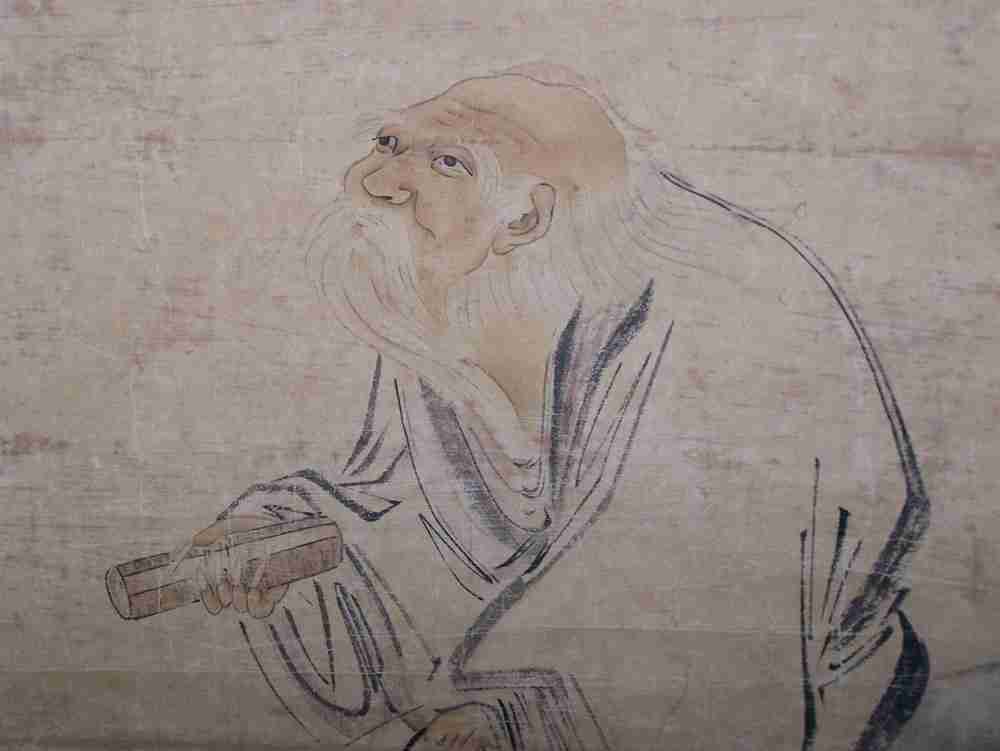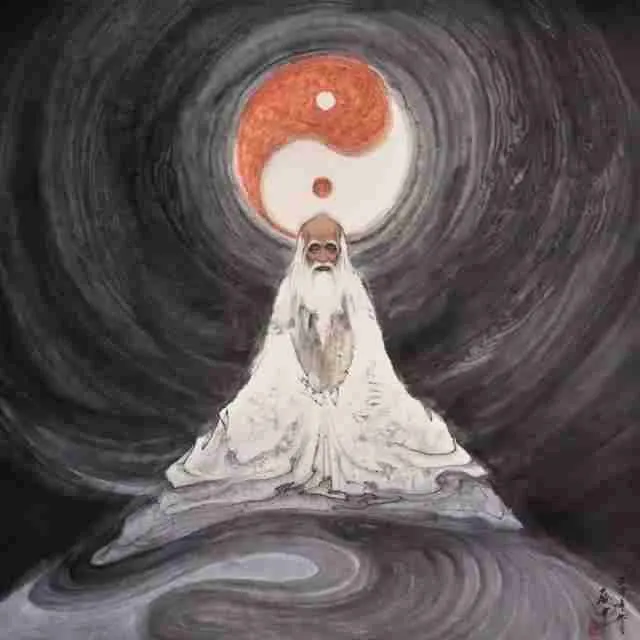Taoism, Confucianism, and Buddhism were the main philosophies and religions of ancient China and they are considered the three main pillars of ancient China. These 3 philosophies have significantly influenced both ancient and modern Chinese society. One of the greatest proponents/philosophers of Taoism philosophy is Laozi, and he was considered a great and very influential thinker in ancient China. Read on to learn more about his life, his ideas and his teachings.
Who was Laozi?

Laozi, also known as Lao Tzu, is a historical and Chinese legendary figure and philosopher who is regarded as the founder of Taoism. Along with that, he was also considered a writer and the putative author of the Tao Te Ching/Dao De Jing that serves as the guiding book of and the most sacred text in Taoism. Also, he is considered a mythical figure a diety in traditional Chinese religions and religious Taoism.
He is a central figure in Chinese culture and his book has actively shaped modern China. In modern China, people of the Li surname claim that Laozi is the founder of the Lineage and he is recognized as an important figure in the Tang Dynasty. Additionally, his work and philosophy has been accommodated by Chinese Legalism and various authoritarian movements in China.
Laozi- Life and Death
According to most Chinese Literary sources, Laozi, also known as the ‘Old Master’ or ‘Lao Tzu’, is said to have been born and died around the 6th or 5th Century B.C.E. Just as we mentioned, he is considered a mythical figure in China and the mystery of his life started with his conception. Supposedly, his mother gazed upon a falling star and immediately after, master Lao Zhu was conceived. After conception, Laozi spent approximately 80 years in his mother’s womb. After his unusual gestation period, he emerged as a fully grown man with a large grey beard. The beard was a symbol of wisdom in ancient China and most literary works identify that Laozi was born and lived in the village of Chu Jen in the state of Chu in the People’s Republic of China.
As life went by, he became a Shi, that is an archivist and a historian for the emperor during the Zhou Dynasty and the Tang Dynasty. He was considered an authority and a divinity as well as the greatest keeper of sacred texts. In terms of companionship, his marital status is greatly contested. Some sources claim that Laozi had a son named Zong and his son became a powerful soldier who greatly disrespected the bodies of the people he had killed. Supposedly, however, when Laozi came across his son during his travels across China, Laozi was taken aback by his son’s lack of respect. It was during this time that he taught his son the need to create a harmonious balance between him and the universe. Other accounts claim that Laozi never got married.
Towards the end of Laozi’s life, it became clear to him that the Zhou Dynasty, which he was greatly associated with, has lost the mandate of heaven and there was a lot of chaos and conflict in the region. Because of this, he had to travel towards the west to discover new territories. Once he reached the gates at Xiangu Pass, the guards of the gates recognized him and couldn’t let him pass without sharing part of his wisdom. For this reason, Laozi had to write down everything he knew and his philosophy and that became the sacred text of Taoism (The Tao Te Ching).Supposedly, he was never seen again after passing through the gates but he sometimes appeared to teach people about Taoism. Sima Qian (a Chinese author) claims that Laozi disconnected from the world so that he can seamlessly search for a simple existence, a quiet life, and inner peace so that he can be in unison with the universe. Unfortunately, very little is known about his death, so his disappearance is considered the end of his life.
Why did Laozi create Taoism?

According to Laozi, Taoism simple exudes that the purpose of life is inner peace and harmony. That said, Laozi created Taoism to show people ‘the way’ or ‘the path’. He simply emphasizes the virtues of compassion and moderation and explains that Taoism is concerned with a spiritual level of being.
Generally, the Tao is sometimes difficult to define but according to Laozi, it is the universe. As mentioned earlier, the whole idea behind Taoism is that humans and animals have an obligation to live in a state of harmony with the universe, and the energy (Qi) that is found in the universe. Laozi was convinced that the energy present in the universe is the guiding force of life. For this reason, he wrote the Dao De Jing as a guide for behavior and spiritual ways through which human beings can live in harmony with this energy.
From his book, the energy (Qi) is not necessarily a god. In fact, Laozi makes it clear that the gods are part of the universe, just like all other living creatures. On that note, the book is also a detailed guide on the structure and components of the universe. Besides that, the books helps Taoists understand various rituals and activities that are essential for priests, monasteries, and temple conduct.
Lastly, it is through Laozi’s book that we understand that Taoism believes in balancing the forces of yin and yang. It outlines ideas that represent matching pairs, such as action and inaction, good and bad, hot and cold, light and dark, which all work together towards ensuring harmony with the universe. The forces of yin and yang simply show that everything is connected in the universe and the book ensures that Taoists understand that nothing in the world makes sense on its own.
Laozi Philosophy (Definition)
As mentioned earlier, Laozi is the legendary founder of philosophical Taoism, also known as Daoism. He was also considered a deity in religious Taoism and greatly influenced religious and social patterns in ancient China. Taoism is simply the Chinese religion that developed after Confucianism over 2000 years ago. This philosophy/religion is mainly concerned with the key spiritual elements of life, including the nature of the universe. Along with that, Taoism holds that both humans and animals should live in balance with the universe (the Tao) and is heavily centered in spiritual immortality, where the spirit of the body becomes one with the universe after death.
The guiding principle of Daoism is considered the ‘the way’ and it is defined as a harmonious natural order that arises between living things (humans and animals) and the world. The Taoists, therefore, believe that they should always seek to achieve this harmonious natural order. According to Taoism, humans have an obligation to yield to the Tao (the universe) and only do positive things that are natural and that ensure the universe is nourished. Laozi describes this as the concept of ‘Wu-Wei’, which simply means non-action. This concept simply explains that human beings should go with the true nature of the world and that they should not strive too hard for personal desires and earthly possessions.
Unlike Confucianism, Taoism sees government, society, and human mortality, as mere inventions of humans and not a part of the universe. Along with that, Laozi’s philosophy is also centered on longevity, of both the body and soul of humans. He ultimately believed that spiritual immortality is only achieved by becoming one with nature. Based on the concept of longevity, the Chinese invested in the creation of natural Chinese medicine. In light of this philosophy, they began to observe how different natural medicines affected both humans and animals and how they somewhat prolonged lives.
Laozi Quotes/Lao Tzu Teachings

Laozi emphasized harmony with the universe in order to achieve the right amount of balance in life. To help understand this better, he taught all his followers (the Taoists) important concepts of yin and yang, and the concept of Wuwei (non-action). Here are some of his popular quotes;
Lao Tzu quotes on Life
‘Be content with what you have; rejoice in the way things are. When you realize there is nothing lacking, the whole world belongs to you.’
‘An ant on the move does more than a dozing ox.’
‘Do the difficult things while they are easy and do the great things while they are small. A journey of a thousand miles must begin with a single step.’
‘Life and death are one thread, the same line viewed from different sides.’
‘Great acts are made up of small deeds.’
Lao Tzu quotes on Love
‘Being deeply loved by someone gives you strength while loving someone deeply gives you courage.’
‘Kindness in words creates confidence. Kindness in thinking creates profoundness. Kindness in giving creates love.’
‘Love is of all passions the strongest, for it attacks simultaneously the head, the heart, and the senses.’
‘Because of great love, one is courageous.’
Lao Tzu quotes on Nature
‘There was something undifferentiated and yet complete, which existed before Heaven and Earth. Soundless and formless, it depends on nothing and does not change. It operates everywhere and is free from danger. It may be considered the mother of the universe. I do not know its name; I call it Tao.’
‘Nature does not hurry, yet everything is accomplished.’
‘Heaven is long-enduring, and earth continues long. The reason why heaven and earth are able to endure and continue thus long is that they do not live of, or for, themselves.’
Lao Tzu quotes on Family
‘When family ties are disturbed, devoted children arise.’
‘Abandon benevolence, discard duty, and people will return to the family ties’.
‘Cultivate virtue in the family, and it will be overflowing.’
Lao Tzu quotes on Thoughts
‘If the mind is willing, the flesh could go on and on without many things.’
‘The wise man is one who, knows, what he does not know’
‘Truly, the greatest gift you have to give is that of your own self-transformation.’
‘If you look to others for fulfillment, you will never be truly fulfilled.’
Lao Tzu quotes on Government
‘The more laws and order are made prominent, the more thieves and robbers there will be’
‘A government can be compared to our lungs. Our lungs are best when we don’t realize they are helping us breathe. It is when we are constantly aware of our lungs that we know they have come down with an illness’
‘The more prohibitions there are, the poorer the people will be. The more laws are promulgated, the more thieves and bandits there will be’
‘The real art of governing consists, so far possible, in doing nothing’
‘Governing a great nation is like cooking a small fish – too much handling will spoil it’
Lao Tzu quotes on Leadership
‘A leader is best when people barely know he exists, when his work is done, his aim fulfilled, they will say: We did it ourselves’
‘To lead people, walk behind them.’
‘Mastering others is strength. Mastering yourself is true power.’
‘When a nation is filled with strife, then do patriots flourish.’
‘When the best leader’s work is done the people say, We did it ourselves.’
Lao Tzu quotes on Death
‘How could man rejoice in victory and delight in the slaughter of men?’
‘If you realize that all things change, there is nothing you will try to hold on to. If you are not afraid of dying, there is nothing you cannot achieve.’
Lao Tzu quotes on War
‘Violence, even well intentioned, always rebounds upon oneself.’
‘Victorious warriors win first and then go to war, while defeated warriors go to war first and then seek to win.’
‘If your enemy is secure at all points, be prepared for him. If he is in superior strength, evade him. If your opponent is temperamental, seek to irritate him. Pretend to be weak, that he may grow arrogant. If he is taking his ease, give him no rest. If his forces are united, separate them. If sovereign and subject are in accord, put division between them. Attack him where he is unprepared, appear where you are not expected.’
‘The supreme art of war is to subdue the enemy without fighting.’
‘What is essential in war is victory, not prolonged operations.’
‘If your opponent is of choleric temperament, seek to irritate him.’
Why is Laozi important?
Laozi is greatly valued as an influential philosopher by Confucians and is venerated a god in popular Chinese religion. Additionally, he is valued as an imperial ancestor in the Tang Dynasty. His book, the Dao De Jing, is very important for Chinese culture and history because he has clearly outlined the Tao/Dao (the universe) for the individual as well as for all the leaders set to rule China and various ways of governance. He further teaches the Chinese the importance of benevolence and respect. Along with that, he outrightly advocates living naturally and freely as one truly is, rather than who one is supposed to be. Because of him, some Chinese believe that they are one with the universe, and following the flow of the universe simply entails being natural, observing non-interference, non-action, and simplicity.
Laozi’s Book (Why did Laozi write the Dao De Jing?)
Laozi wrote the main book of Taoism, the Dao De Jing/The Tao Te Ching around 500 B.C. The book means ‘The Way and Its Power’ and it is a collection of poetry and sayings from the 3rd and 4th centuries BC that actively guide Taoist thoughts and actions. According to most scholars and other Chinese philosophers, Laozi’s book is more of a gathering of earlier sayings and poetry from several authors and the book was given an origin with the Taoist philosopher Laozi for cultural, social, religious, and political reasons.
His philosophy of non-action, as depicted in his book has a huge impact on future generations. This is mostly because it has the ability to make the country as peaceful as possible. All in all, Laozi primarily wrote the Dao De Jing to the rulers and the emperors that lived during his time. All he ever wanted was that the countries in Asia and the provinces in China can easily coexist peacefully, hoping that there won’t be any wars and other chaotic conflicts in the communities.
His poetic style is universal and it tries to teach people how to think and behave in a manner that is acceptable to society and as understandable as possible. Additionally, the book is meant to teach people how to rule the world, because it is more or less dedicated to the ruler. Additionally, this book serves as a military strategy that teaches people how to fight and conquer territories in a dignified manner. It also teaches people how to behave and Laozi highlights three important concepts: patience, compassion and simplicity, as the best ways of living.
Through his book, he was the first to explain to explain about the nature and philosophy of life. He was the first who exclusively discussed the origin of the universe and how living creatures should co-exist harmoniously with the universe.